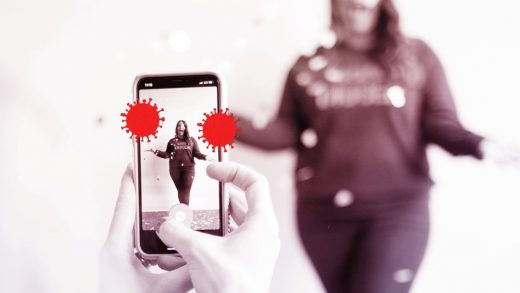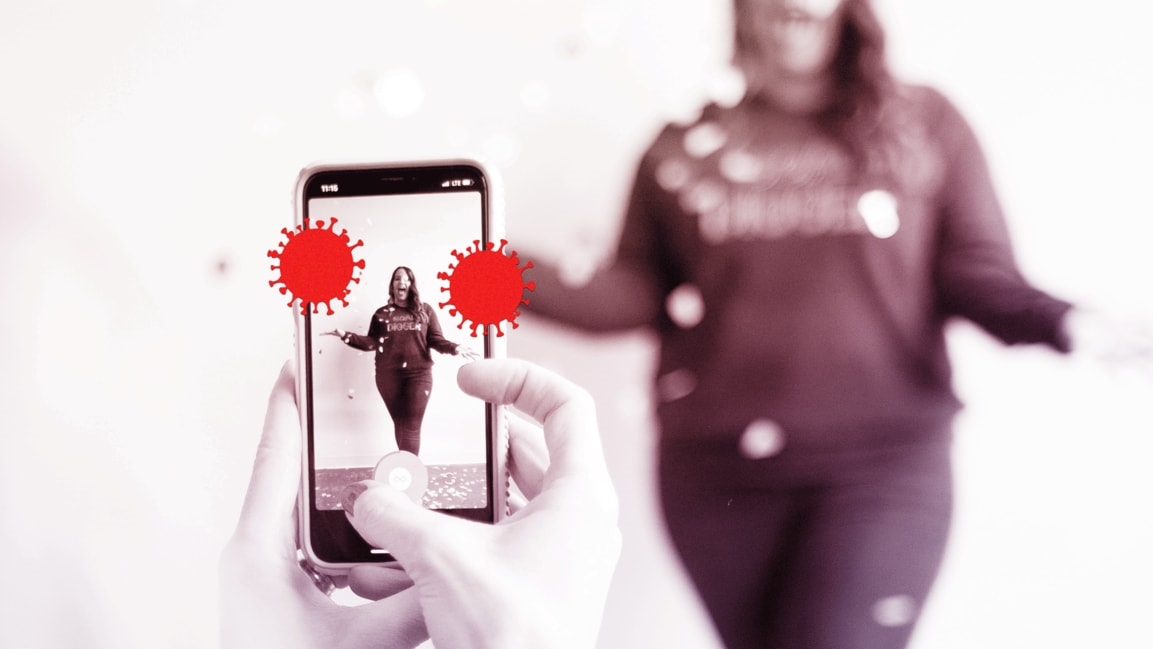Bored celebs + cooped-up fans = Cameo is booming during COVID-19
The COVID-19 pandemic has crippled industries from tourism to theme parks to movie theaters, as widespread self-isolating mandates have ground to a halt pretty much anything that has to do with groups of people in one space.
While a record-shattering 3.3 million people filed for unemployment in the United States last week, some companies have seen a boom in business. There are those you’d expect like Clorox, Campbell’s, and Gojo Industries (the parent company behind Purell).
And then there’s Cameo.
The pay-for-shout-out platform has been solidifying itself as a long-tail revenue stream for entertainers, athletes, and even politicians—not to mention a viable source of playful trolling. For anywhere from $2 to $2,500, users can request a video message from celebrities and public figures. Since launching in 2017, Cameo has amassed a talent roster of more than 25,000 notable names who have fulfilled approximately 500,000 requests.
Then the pandemic hit, canceling all sports and almost all entertainment production. “We’re in this really weird environment where every athlete, actor, celebrity finds themselves basically with nothing to do,” says Cameo cofounder and CEO Steven Galanis.
At the same time, these performers’ fans are also sitting at home, seeking connection in the wake of being isolated by quarantines and shelter-in-place orders.
“Just because [celebs and athletes are] not playing games or they’re not having concerts,” Galanis adds, “it doesn’t mean they want to stop connecting with their fans.”
As a result of both of these phenomena, Cameo has experienced a massive surge in activity: Talent sign-ups have increased 160% since the beginning of March, with an 83% increase in bookings.
Cameo’s surge amid the COVID-19 pandemic is the perfect confluence of users trying to keep family and friends entertained during a worldwide crisis, and talent tapping into a new revenue stream—or just looking for time to kill while in quarantine.
Comedian Tony Atamanuik, who is best known for playing Donald Trump in Comedy Central’s The President Show and a national touring debate with Bernie Sanders, played by comedian James Adomian, recently tweeted, “Fuck it! You want to pay me 25 bucks to say or do whatever, I will. I’m shut in my house and I’m going insane.”
Fuck it! You want to pay me 25 bucks to say or do whatever, I will. I’m shut in my house and I’m going insane. https://t.co/H7ZGxspFj4
— Tony (@TonyAtamanuik) March 22, 2020
Actor Jeff B. Davis, who’s best known as an improv comedian and part of the Whose Live Anyway troupe (the touring version of the long-running Whose Line Is It Anyway? TV series), posted on Instagram: “Anyone else bored and stir crazy? Give me a shout out on @cameo. I take requests.”
In addition to athletes, actors, and comedians making do with suspended seasons, halted productions, and postponed gigs, the influencer space has also taken a major hit as companies have pulled advertising dollars en masse.
“We’ve anecdotally heard from our creators that a lot of brands have pulled back influencer marketing campaigns recently,” Galanis says. “They’re dropping their prices and discounting rather than paying some talent to do an Instagram post. So those opportunities are drying up. For us, we think the value prop for Cameo has never been stronger.”
There’s also been a wave of social good rippling through Cameo as well.
Celebrities including Mandy Moore and Busy Philipps have recently joined the platform for charitable endeavors such as No Kid Hungry that are helping to mitigate the social fallout from the COVID-19 pandemic.
I honestly am having fun recording these @BookCameo videos to raise money for @nokidhungry and @WCKitchen and most people are just asking for pep talks for their friends or family which is really sweet. Anyway. It’s nice. ??
— Busy Philipps (@BusyPhilipps) March 25, 2020
Galanis has also noticed a trend of talent lowering their asking prices by around 27% on average.
“The talent are realizing that their fans are hurting and they want to use this time to comfort them. So they’re lowering their price to make themselves more accessible,” he says. “You think about all the birthday parties and graduations that are getting canceled. People are postponing weddings. But that doesn’t mean you don’t want to spread joy and spread love.”
Cameo at the intersection of a mass quarantine has had another unintended effect: cinematic art.
Filmmaker Ben Berman (The Amazing Johnathan Documentary) was first introduced to Cameo in January when a friend bought him one because he knew Berman he was in a bit of a personal and professional funk.
“I was depressed and sad in the bathtub, and all of a sudden Jon Lovitz was on my phone saying, ‘Congratulations on finally figuring out how to live a peaceful life!’” Berman says. “I just found that really funny—and weird.”
Berman started sketching out an idea of telling a narrative through Cameo clips, but it wasn’t until he was under quarantine that his short doc The Follow-Up came into focus.
In a combination of screen-captured searches and Cameo videos, The Follow-Up charts Berman’s mental state as his main concern of feeling washed up as a filmmaker dramatically shifts into COVID-19 panic. Berman reached out to celebrities on the platform, including Mark McGrath, Lindsay Lohan, Tommy Chong, and Richard Karn for reassurance in unsure times, in effect creating social commentary on how we process information in the internet age.
“Even as we speak now, this morning I woke up and my chest is sore. I’m a little concerned. But that’s the point that I’m making,” Berman says. “Me in The Follow-Up represents people my age. I’m kind of neurotic, like, okay, my chest hurts—shit, a lot of people are dying.”
So where do people usually turn? Googling symptoms and frantically scrolling through WebMD.
“Even instead of sitting for 10 seconds and trying to remember someone’s name, I’ll go to Google or my Gmail and try to recall it that way,” Berman says. “The internet is used as this big crutch. So I think that’s represented in The Follow-Up.”
In a bit of a twist, Berman recently submitted his application to be on Cameo himself.
“Everybody that’s staying at home, flattening the curve, that’s absolutely critical,” Galanis says. “Now the efforts for social distancing present an interesting landscape: More customers are booking, more people are sharing [Cameo videos], more people are reaching out to talent they’re a fan of, saying, ‘Why aren’t you on Cameo?’ That starts this positive feedback loop that’s helped this business weather some really tough times.”
Fast Company , Read Full Story
(21)



